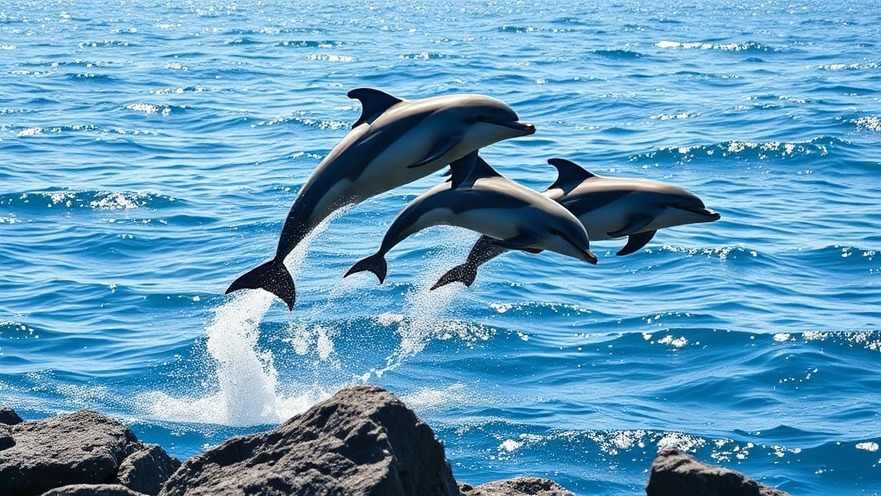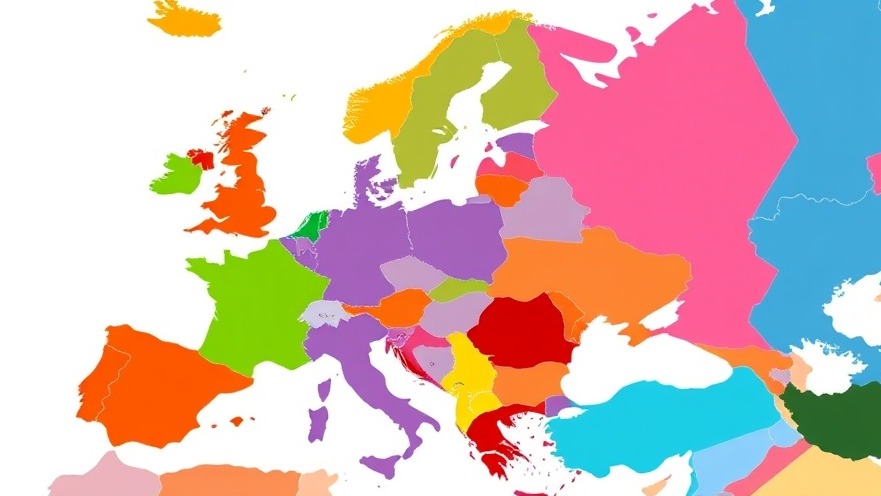
Why Jeju's Bottlenose Dolphins Deserve Legal Protection
Bottlenose dolphins in Jeju Island, South Korea, are facing imminent threats from various human activities. These include collisions with boats, pollution, and discarded fishing gear that pose significant dangers to their survival. In response, a coalition of environmentalists and lawmakers is proposing a radical yet pioneering initiative: granting these dolphins ‘legal personhood’ status. This burgeoning movement aligns with global trends aiming to recognize the legal rights of non-human entities, a concept that not only elevates the dolphins' status but also strengthens protective measures for marine ecosystems.
Historical Context of Environmental Legal Personhood
The concept of granting legal personhood to animals is still in its infancy, yet it has gained traction worldwide. Notably, similar initiatives have been adopted in countries such as India and New Zealand, where specific animal species are afforded legal rights. Legal personhood can empower advocates and environmental groups to take legal action against activities that threaten the habitats of these creatures. In Korea, this would mark a significant progression in environmental law, particularly for a region like Jeju, which has unique ecological values.
Impact of Human Activity on Dolphin Populations
The Indo-Pacific bottlenose dolphin population off Jeju Island is estimated to be around 120 individuals. These dolphins are not only an integral part of the local ecosystem but also of Jeju's cultural heritage, famously coexisting with traditional female divers known as **haenyeo**. However, increasing pollution levels, boat traffic, and underwater construction activities compromise their living environment. According to environmental activists, injuries from fishing gear and other human impacts are evident – many dolphins bear scars from these encounters.
The Legal Framework the Proposal Would Involve
The proposed legal amendment to recognize dolphins as ‘eco-legal entities’ would grant them certain rights and establish advocacy frameworks to defend their interests. This would necessitate the creation of committees responsible for monitoring dolphin populations, researching environmental concerns, and securing funding to bolster conservation efforts. The official recognition of dolphins as legal beings would catalyze a cultural shift toward a more eco-centric legal regime and set a benchmark for environmental policies in South Korea.
Potential Repercussions and Further Steps Ahead
While many may view this proposal as an ambitious leap, it comes with challenges, including potential resistance from industries like fishing and tourism that could be affected by new regulations. Advocates argue that protecting dolphins can create new opportunities in ecotourism and sustainability, enhancing the island's appeal. The Jeju government is gearing up for thorough discussions about this proposal to mitigate risks while pursuing ecological sustainability. Moreover, the community's involvement is critical, as consistent advocacy from residents will aid or impede the initiative’s success.
The Bigger Picture: Global Conservation Efforts
This ambitious move is not just about protecting Jeju's dolphins but reflects a growing recognition of the interconnectedness of ecosystems and the species within them. Globally, initiatives aimed at preserving biodiversity face threats from **climate change**, **microplastics pollution**, and habitat loss, making the fight for legal recognition of dolphins particularly relevant. As boutique hospitality professionals explore sustainable practices, understanding these broader environmental challenges can pave the way to innovative solutions for conservation efforts. Investing in eco-friendly practices, such as using alternatives to leather and reducing plastic use, not only aids in protecting marine life but aligns with the rising consumers’ demand for sustainability.
Call to Action: Embracing Eco-Conscious Initiatives
The journey to protecting Jeju's bottlenose dolphins through legal personhood is groundbreaking and indicative of a larger movement aimed at environmental stewardship. As members of the hospitality and eco-tourism sectors, you can amplify these changes by adopting sustainable practices and engaging in local conservation efforts. Together, we can create a future where our natural world is valued, protected, and cherished.
 Add Row
Add Row  Add
Add 




Write A Comment